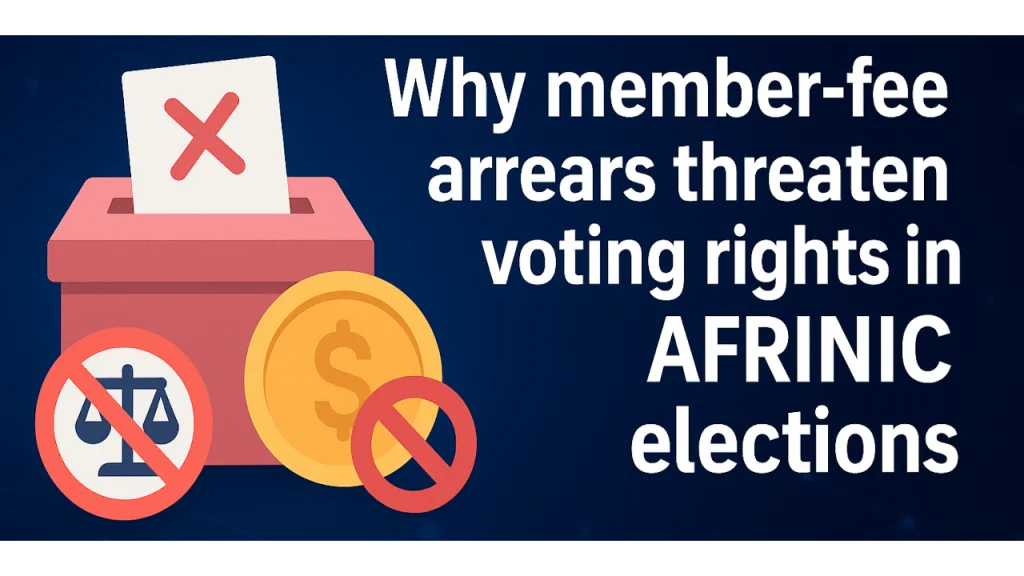- AFRINIC’s “in good standing” rule creates a barrier to participation and favours entrenched entities.
- The fee-arrears requirement compounds election failures and stokes calls for reform.
Fee-arrears policy shadows AFRINIC’s election meltdown
The African Network Information Centre (AFRINIC) has placed a strict condition on electoral participation: only members “in good standing” may vote — meaning those with outstanding membership or allocation fees are barred. According to the registry’s own guidelines, voting access is suspended if an organisation has unpaid invoices.
Observers note the timing is more than coincidental. The arrears policy gives the management a lever to control who can vote and who cannot — raising serious concerns about fairness, transparency and the very legitimacy of AFRINIC’s governance.
Also read: AFRINIC’s hidden scandal: How legal fees exposed a culture of corruption
Also read: Proxy voting reforms for AFRINIC: What a fair model should look like
The exclusion dynamic and power imbalance
The requirement to clear arrears before being eligible to vote appears neutral; however, in practice it creates disproportionate barriers for smaller members. Many regional ISPs and academic networks struggle with membership fees or allocation charges, especially when annual dues are in foreign currency or administrative payments are delayed. By contrast, larger entities often maintain their status more easily and may negotiate structures behind the scenes.
Critics say the arrears rule is being enforced unevenly. Some members with significant outstanding balances remain eligible to vote, while smaller actors are blocked without clear notification or appeal process. This contributes to a perception that AFRINIC is favouring insiders and those aligned with its current management rather than ensuring equal representation. The consequence is a skewed election landscape where certain blocs dominate not because of member support but because of voting eligibility.
Also read: AFRINIC staff violated obligations during 2025 election
Governance crisis deepens
This fee-based voting exclusion compounds AFRINIC’s broader crisis. The 2025 election – already under scrutiny for proxy disputes and judicial interventions – has been further undermined by the perception that the registry is using financial criteria as a gatekeeper to democracy. Without full enfranchisement of members, the election cannot be considered fair, raising questions about AFRINIC’s ability to abide by its own bylaws and global governance standards.
Also read: Could a public audit save AFRINIC from collapse?
Reform imperative
Ultimately, reform must ensure that the registry’s elections reflect the full membership, not just those who can clear financial hurdles at the eleventh hour. Unless AFRINIC takes these steps, its elections — and its very legitimacy — may continue to falter.

